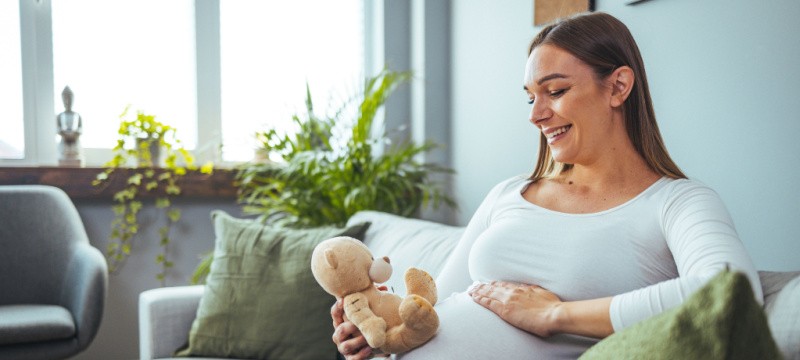Becoming a parent is an incredibly exciting and fulfilling time, and it changes your life in a myriad of ways. From getting to know your new addition to developing a new routine and changes to your diet, there’s so much to think about that it’s understandable that mental health can fall to the bottom of the list.
But protecting your mental health is vital, not only for you but for your family and your new baby. It’s likely that you’ll go through a broad spectrum of emotions before, during and after pregnancy, so here are a few ways you can ensure you’re taking the best possible care of your health and wellbeing.
Before pregnancy
Preparing for a baby can be daunting, and very overwhelming at times. From working out how you’ll afford to have a child to taking time off work for maternity leave and wondering what sort of parent you want to be, it’s only natural that you might experience some anxiety during this time. There may be additional emotions to contend with if you’re struggling to conceive or having fertility issues, which can add to the stress and worry.
Take the time to regularly check in with your emotions and stay on top of your mental health, because when these stressors and anxieties are left to fester in the background, they can be damaging to your overall mental wellbeing. Self-care in the truest sense of the term is vital at this time, from exercising regularly to eating a balanced diet and finding ways to relax when you’re stressed.
It’s also important to find people in your life you can talk to when things feel overwhelming, whether that’s a friend, a relative or a therapist — getting those feelings out and seeing them from a new perspective can make all the difference.
During your pregnancy
During those nine months of pregnancy, you’re going to feel a host of different emotions, from happiness and immense joy to worry, anxiety and even depression. Symptoms such as nausea, morning sickness and tiredness can all take their toll on your mental and physical health, and can be hard to cope with.
It’s common to be worried about the change in dynamic in your family, how having a baby might affect your relationship and fears for the birth itself. It’s estimated that one in five women struggle with mental health problems in pregnancy and that can happen to anyone, whether you’ve struggled with mental health problems before or not.
Work closely with your GP throughout your pregnancy to get the help and support you need while you’re going through these changes. There are several ways you can combat feelings of anxiety and depression, from counselling and CBT techniques to manage negative thoughts to journalling your feelings, or medication if your symptoms are more severe.
Post-pregnancy
After your baby is born, you could be faced with a rollercoaster of emotions, with extreme highs and deep lows. You may feel ecstatic one day and feel lonely and guilty the next. It’s completely natural that, with such a huge life change and your hormones running wild, your emotions will be scattered for a while.
Be sure to take care of yourself every day to keep your emotions balanced and your health in check. It can be helpful to find someone you identify with who you can share your thoughts and worries with, no matter how silly they may feel to you. It really helps to have someone validate how you’re thinking and your emotions are completely valid, so talking about it with someone you trust can help you offload those thoughts and feelings. It’s also important to get plenty of sleep.
A new baby is guaranteed to disrupt your usual sleep cycle, so prioritise good quality sleep as much as possible, because tiredness can exacerbate your negative feelings and intensify mood swings. Make sure you’re heading to bed early, that you’re creating a restful environment to sleep in and that you’re napping regularly throughout the day when your baby is sleeping, to catch up on those hours you might be losing during the night while your baby adjusts.
Everyone will have an opinion on how you raise your baby, but every parent has to find the routines that work best for them. Trying to live up to other peoples’ expectations will only make you more stressed and anxious and can leave you feeling like you’re failing as a new mum. Stick to what works well for you and keeps you and your baby as healthy as possible.
If you’re worried about the way you’re feeling or you’ve been struggling with your mental health for a few weeks, it’s vital that you speak to your GP. They’ll be able to provide you with the resources and advice to keep you safe and provide you with suitable treatment. During such a busy time, taking care of yourself is hugely important and the best way to do that is to keep on top of your mental health and seek support when you need it.


